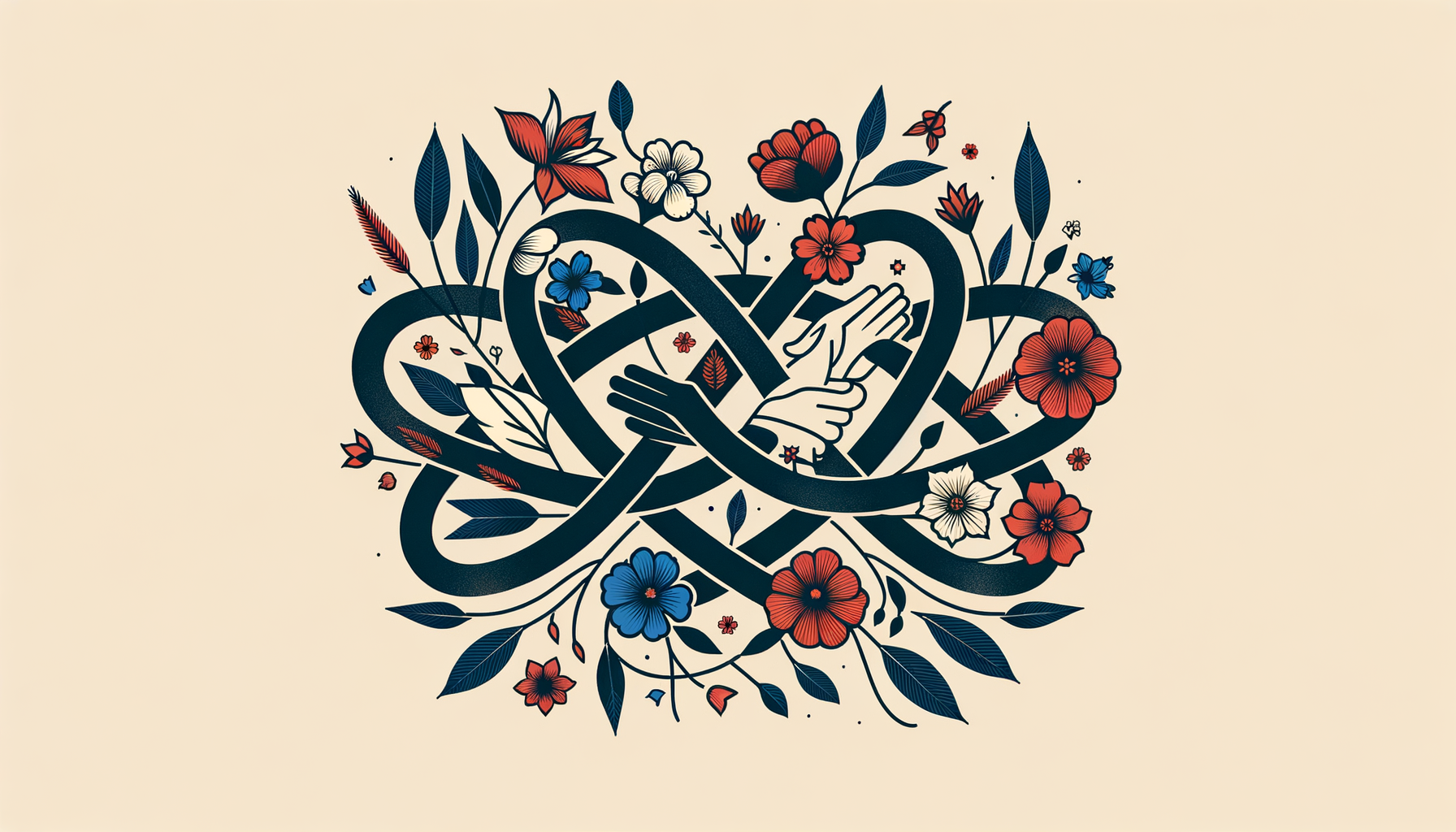It started with a simple phrase my mom used to say while stirring her Sunday soup: Les Bouchards ne se disputent jamais — "The Bouchards never argue." Her tone was always soft, confident, and just French enough to make it sound sophisticated and final. For years, this little familial mantra guided how I understood relationships, both in and out of our home. Disagreements were a sign of failure, not normalcy. A perfect family? One that stayed in peaceful harmony, like a string quartet, forever in tune.
Spoiler: We were not a string quartet. We weren't even the backup band. And by the time my first serious romantic relationship imploded in my early 20s, I had a front-row ticket to the limits of this so-called “Bouchard way.”
Let’s unpack this family myth I grew up believing, why it stopped making sense, and what my undignified (yet oddly freeing) crash course in conflict taught me about love, relationships, and the art of, well, arguing.
The Myth of Harmony: A Hallmark Delusion
Picture this: a dinner table where no one raises their voice, where debates are light and polite, and everyone agrees physical affection is superior to confrontation (hugs, not fights!). The Bouchard model.
To be fair, we did have a peaceful household. My parents spoke in calm, measured tones, like they were negotiating trade treaties rather than deciding who’d clean the floors. There was never yelling, no door-slamming dramas, and certainly no airing of grievances between étages of our duplex. My grandparents even chimed in every holiday season with validation: “Your family is très civilisé. Other households,” their voices would drop conspiratorially into an octave of pity, “other families have struggles.”
Hearing that your family is uniquely flawless as a moody pre-teen? Fantastic. It makes you feel smug, superior even—until you grow up and realize… no relationship, romantic or otherwise, is free of struggle. Que sera, sera.
Fast forward to my early 20s, living with my boyfriend in a shoebox-size, chaotically charming Montreal apartment. Fights (or lack thereof) quickly became a recurring theme. I unknowingly copied my family’s Greatest Hit: conflict avoidance. He, on the other hand, was direct and emotionally unfiltered, which in my head registered as "Why is he making this such a thing?" My go-to survival tactic? Smile tightly like a toothpaste ad and change the subject.
Apparently, that’s also known as… shutting people out.
Why Avoiding Conflict Doesn’t Save Relationships
Here’s the problem with expecting harmony to sustain all relationships: tension doesn’t take hints. You can nod, smile, swallow your dissatisfaction, and bake an apologetic banana bread, but those feelings you push aside? They’ll find ways to bubble up—possibly during one very dramatic argument about whose turn it is to buy toilet paper.
Emotionally, I treated disagreements like a bad batch of macarons: something best ignored, skipped over, and never brought up again. But ignoring them didn’t resolve anything. Avoiding conflict wasn’t making me “graceful and composed.” It was plastering over the cracks in the wall while the foundation underneath started to crumble.
This manifested in frustrating ways, like crying mid-grocery store when my then-boyfriend didn’t “seem romantic enough” (yes, I was that person in the frozen food aisle). Or escalating things to Broadway-level drama after three days of overly quiet passive-aggression. Turns out, avoiding conflict doesn’t make you serene and unproblematic—it makes you unbearable. (Don’t worry, I’ve since apologized to every former boyfriend and the poor cashier who scanned my weepy carton of Häagen-Dazs.)
Rethinking Conflict: Why Every Relationship Needs the Occasional Storm
When my mother dropped les Bouchards ne se disputent jamais into conversation, I honestly think she meant well. What parent doesn’t want to imagine their kids building lives where peace blankets every room? But somewhere along the way, I absorbed that harmony at all costs was the goal. And spoiler: it’s not.
Here’s the thing: the strongest relationships, from your best friendships to your longest loves, aren’t the ones without disagreements. They’re the ones where you feel safe enough to argue—messily, honestly, and with the understanding that resolution doesn’t mean “winning.” It means listening, responding, and yes, sometimes being hilariously wrong.
Fights aren’t love’s kryptonite. In fact, handled thoughtfully, they’re its ultimate act of trust. They say, “I respect you enough to be honest, even if it’s not pretty right now.” Conflict doesn’t have to look like a Taylor Swift breakup anthem. Sometimes it looks like a 1 a.m. kitchen session, hashing out who forgot to turn off the stove and accidentally burned the soup.
So, What Have I Learned?
Here’s what I know now that I didn’t know as the proud poster child for family unity:
-
Conflict Isn’t The Opposite of Love. Silence is.
When you avoid difficult conversations, you’re not keeping the peace—you’re keeping all your emotions spinning in purgatory. Trust me: speaking up is the real path to connection, whether it’s romantic or platonic. -
Arguing Is A Learned Skill.
Good arguments aren’t free-for-alls; nor should they simmer like a French stew for weeks before exploding. They’re about voicing frustrations while still respecting boundaries. (Keyword: boundaries. No one deserves to be screamed at during Date Night, okay?) -
Perfection Is Overrated.
Healthy relationships are more like waffles than soufflés—better when they’re a little messy but still structurally sound. Real connections aren’t flawless. They’re flexible, forgiving, and adaptable. -
Sometimes, You Just Have To Laugh.
Look, I’m not proud of shouting “STOP TALKING TO ME” mid-argument because my partner couldn’t stop quoting Star Wars. But after a quiet pause and a lot of side-eye, we laughed so hard the fight seemed ridiculous in hindsight. Humor really can be the glue in these moments.
Rewriting The Myth
These days, I call my mom with more frequency and far less resentment. “Les Bouchards ne se disputent jamais,” I can almost hear her say mid-conversation, though now with a heavy dose of acknowledgment that it doesn’t hold up quite like it used to. I’ve since teased her about it: how she planted that idea in my head and how badly it’s aged. “Maybe we just didn’t fight,” she offered one day, “because you were always so stubbornly agreeable.”
Well played, Mom. Well played.
I’ve kept part of the family legacy intact, though with some important edits. In my mind, I imagine my own future partner and children wrapping up their disagreements with something more grounded—more truthful. Maybe it goes like this:
“Les Bouchards argue because we care.”




















